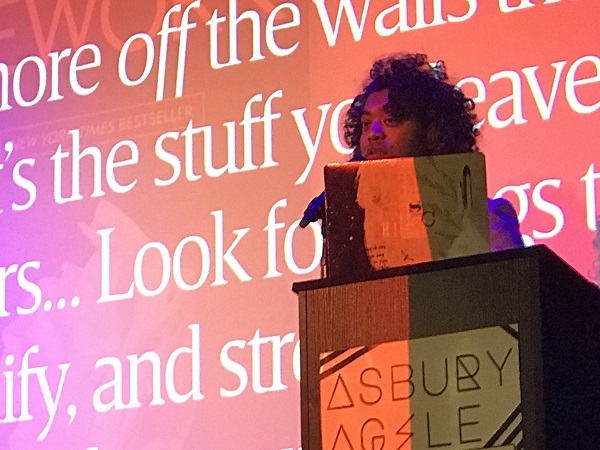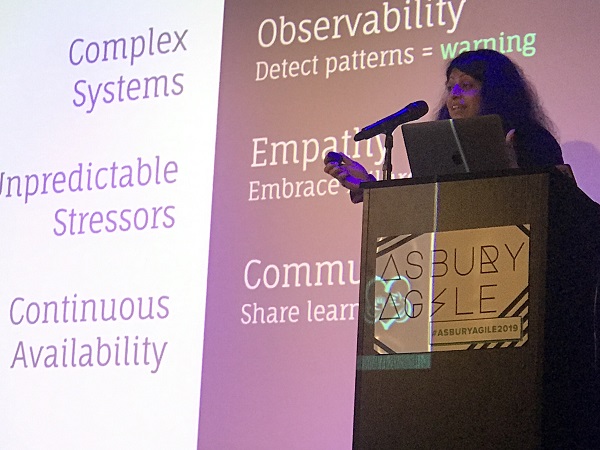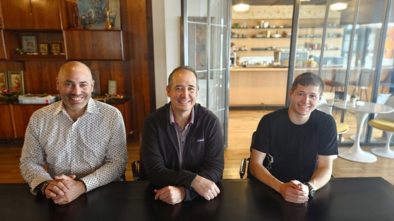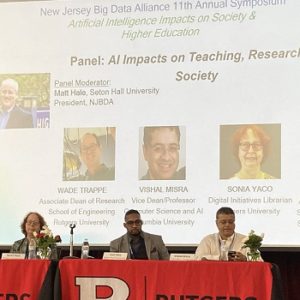Asbury Agile Speakers Tackle Job Insecurity, Stress at October Conference
At the ninth annual Asbury Agile conference, held in Asbury Park on October 4, the speakers addressed a variety of topics, some technical, some not.
Historically, this conference has offered both in-depth tech tips for developers and designers and holistic presentations on the gestalt of being in tech.
This year was no exception.
For example, in his talk, called “Putting the ‘Design’ in ‘Design Systems,’” Asbury Agile speaker Dan Mall, founder and director of SuperFriendly, noted that designers worry about job security.
SuperFriendly is a Philadelphia-based design outfit that helps in-house teams make better products through design systems.
“We make things for other people. We make things that help other people, and if those other people are colleagues, coworkers, developers, product managers, information architects and copywriters, even better,” he said.
“But what if the design system is too good? What if it serves everyone’s needs? What if we make a great design system and they don’t need us anymore? See that’s what we’re scared about?” How do we build design-system cultures that embrace designers, instead of replacing designers?”

Keep Design Systems Boring
His answer: Keep design systems boring. “When a design system is boring, it frees designers and developers to do the new stuff, to solve new problems. The design system carries the burden of the boring, so designers and developers don’t have to,” he said.
“Our philosophy is that design systems should be made up of all the boring stuff you never want to design again,” he noted, estimating the mundane work to be about 80 percent of projects. “Twenty percent is all the fun stuff that gets pushed to the end of the project, that we never get to.”
With a good designer and engineer, “what is valuable about their work is not just what they are doing with their hands — the coding, the writing, the designs they are making — but what’s inside their brains. How can they apply their brains and smarts to all these new problems. And if you are stuck designing tables, and forms, and headers and cards, then you can’t do all the other stuff,” he said.
“Designers and engineers don’t have to be scared anymore,” he told the audience. “Is automation going to take our jobs? Probably. But you know what, I am good with that. Just take all the boring parts, all the dumb parts that I don’t want to do. If I never have to design a button or a table or a form again, that’s good. I’m great with that. Take out all the boring stuff, so I can obsess about the level of polish on that animation or how to manage my teams better, or how to free up a new business for our organization.”
No One is Immune to Failure and Stress
Asbury Agile speaker Nitya Narasimhan, a senior program manager for developer relations at Microsoft, said that no one is immune to failure, stress and the health problems they create. Failures should be shared, kept out in the open, studied and embraced, to help others learn from these experiences and avoid them when possible.
Narasimhan’s discussion was on “HugOps For Humans: From Self-Care to Selfless-Care.” She talked about how working in the tech industry can lead to stress due to concerns about your personal safety, happiness, professional growth and self-esteem.
“Americans are experiencing the highest levels of stress in a decade,” she said, noting that the most common form of stress is triggered by a growing uncertainty about the nation’s future.
“How can we monitor ourselves on the things that stress us? How can we then first create a sense of empathy, so that when things go wrong, we don’t blame ourselves, we don’t batter our self-esteem. We basically say this was a learning experience, let me get through it and I’ll figure it out,” she said.
“And then when you have figured it out, go out and share your failures, so that other people who have experiences like this can be like, ‘Wait, this is normal? I don’t have to worry about this. It happens to other people.’ And you feel better.”




